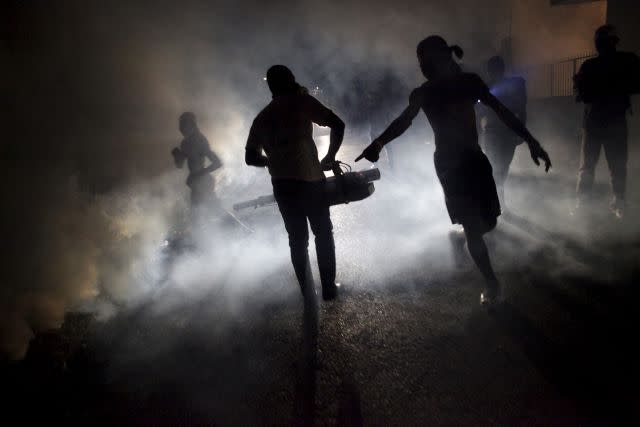Somehow, the world’s governments can’t find more than $4 million for the WHO to fight Zika

Zika has gone from an obscure, rare disease to a global pandemic in less than a year with active transmission in 48 countries and risk of spreading to several more in Europe and Africa. The disease, spread by the Aedes mosquito, is linked to microcephaly and brain damage in children, as well as Guillain-Barré syndrome and acute disseminated encephalomyelitis, both serious and at times fatal neurological conditions.
It remains an obscure disease. The list of what we don’t know about it is really long (pdf). Until we get better understanding and control of the disease and its causes, investing in coordinated international efforts is key—as it had been with Ebola. So far, as they did with Ebola, the world’s governments are failing to do so.
In March, the World Health Organzation (WHO) devised a six-month, $56 million plan to tackle the epidemic. It included tracking new outbreaks, enhancing control of the mosquito population in areas at risk, helping pregnant women who might be exposed to the virus, and speeding up research to understand the disease and develop therapies and vaccines.
WHO had asked for $1 billion for Ebola, so $56 million for Zika ought to be much easier to raise. But as of May 19, a WHO representative confirmed in an email to Quartz that only $3.86 million had been raised—$3.8 million of which is allocated by a contingency WHO fund that is specifically kept for emergencies.
The countries that have pledged funds are Canada ($1.15 million, through three different agencies), New Zealand ($167,000), Japan ($350,000), Australia ($379,000) and Norway ($1.1 million), plus the Bill and Melinda Gates Foundation ($750,000).

Sign up for the Quartz Daily Brief, our free daily newsletter with the world’s most important and interesting news.
More stories from Quartz:

 Yahoo Finance
Yahoo Finance 